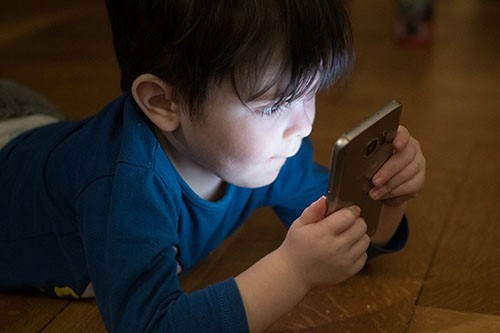How do touchscreens affect pre-schoolers’ play?
A new research project will look at how touchscreens affect the way two and three-year-olds play, and what impact this has on children’s development.

Leading the study is Dr Elena Hoicka, a senior lecturer in Psychology at the University of Bristol, whose research focus is on the role of creative play in early cognitive development.
“Due to the pressures associated with COVID-19, parents and care-givers around the world have increasingly relied on touchscreens to help them balance looking after a toddler with other demands such as working from home and home-schooling.
“Some may have questions or concerns about the impact this could have on their children. With this research we want to find out whether touchscreens are good for children’s development, bad, or a bit of both,” said Dr Hoicka.
The research is funded by the British Academy. Parents and care-givers from all over the world are invited to participate by booking an appointment at babylovesscience.com The study involves participants playing with a touchscreen app or toys with their child while speaking to a researcher on Skype. The session will last around one hour.
As part of the study, parents and care-givers can choose to receive a summary of their child’s play skills, as well as their own play and parenting styles, giving them the opportunity to learn about them.
“With technology changing and becoming more interactive, we believe it is important to find out how new technologies affect children early on by observing the impact of touchscreens on how very young children play,” said Dr Hoicka.
Those who choose to participate in the study will receive an Amazon voucher for £5GBP (UK); $6USD (USA); $8CDN (Canada); $9AUD (Australia); or ₹400INR (India); or they can choose to donate the money to UNICEF instead.